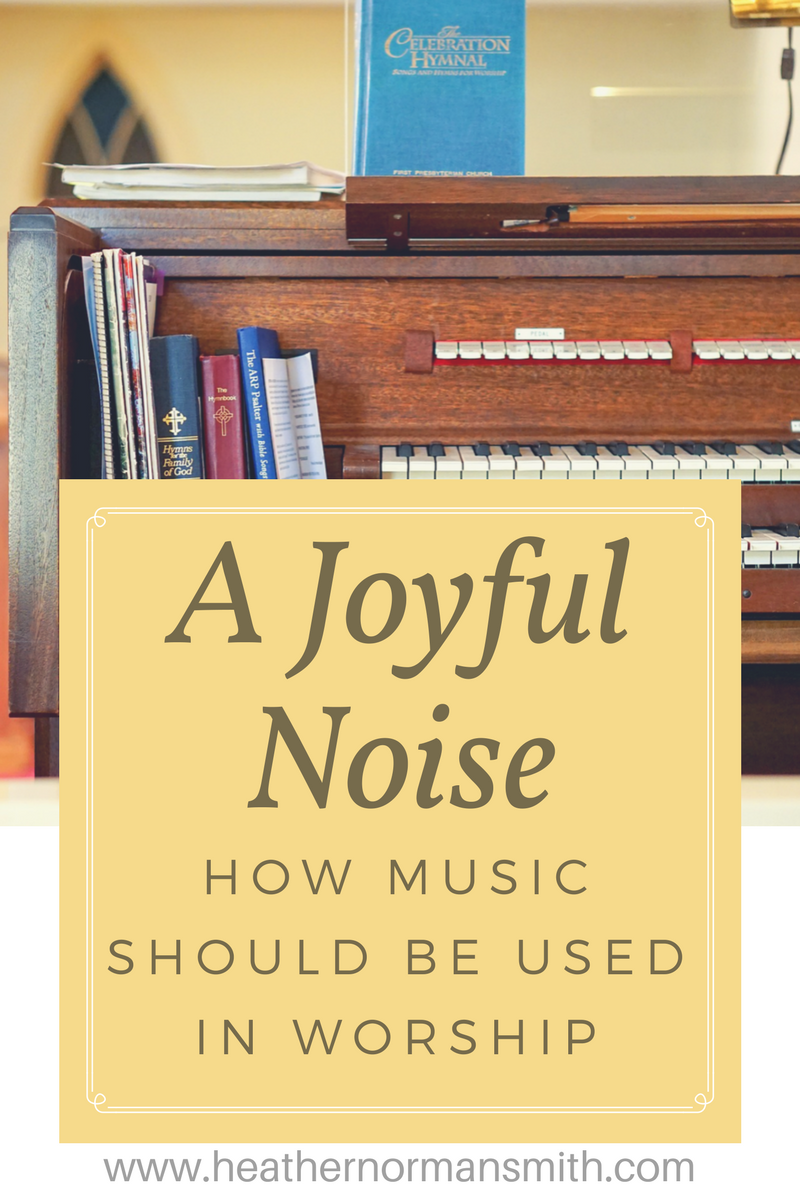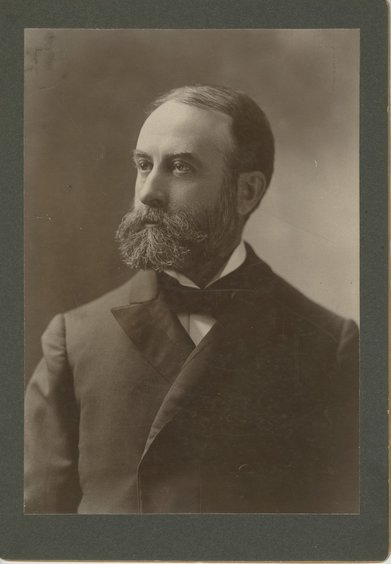|
My head has been swirling with questions for the last two days, and the Lord has been helping me work through some faith issues. I have peace now, if not concrete answers, about all my recent questions, but not the liberty or leading to write about what I’ve learned except for my conclusions on one specific situation. I have five half-written articles to prove it! Now, on to our topic… I’ve been very troubled lately by the dogmatic nature in which a preacher I know addresses a non-doctrinal issue. For the sake of being discreet, I’m not even going to name the issue. Let’s pretend the issue is "traditional versus casual dress" in worship services. That’s not what it is, but it’s a similar type of non-doctrinal debate. Let’s say that on social media this pastor is constantly commenting about how sinful it is for people to show up to worship service in casual attire, and he regularly decries any church that condones such. I feel this pastor’s arguments are “profane and vain babblings” (2 Timothy 2:16) and the manner in which his opinions are delivered, regardless of whether he’s right or wrong, is contrary to the command of 2 Timothy 2:24 (“And the servant of the Lord must not strive; but be gentle unto all men, apt to teach, patient.”) However, that’s not even the point of this article. The point of this article is to answer the questions, “Can I trust a preacher with whom I strongly disagree about one topic?” and “Is the anointed of God perfect in his understanding?” I feel like God answered these questions for me through a recent real-life incident. My husband and I have been trying to give our oldest child more responsibilities, little tests of maturity to gauge how she handles certain situations. Recently, he let her go into a gas station to make a purchase on her own (he was parked where he could watch her through the window). He told her to buy two Slushees- one for her and one for her sister. She came back with three Slushees and a pack of gummy bears. My husband wasn’t angry with her, especially since she had brought him a treat too, but he encouraged her to only buy what she was told the next time. In this situation, my daughter was sent to do a job, which she did, but she overstepped the instructions she was given. In the same way, I think a minister can be truly called and anointed of God, yet at times be erroneous in their teaching or delivery. Sometimes God picks a messenger, God gives them clear instructions, the messenger delivers the message, but because the messenger is human, they add unnecessarily to the original communication. It doesn't mean that person wasn't sent of God. It doesn't mean they are a false teacher. It means they are human. In the scripture we find where Peter, upon whom the Lord declared He would build the church, was called out by Paul because he was wrong in separating himself from the Gentile believers (Galatians 2:11). Even the early church leaders made mistakes! I don’t believe the mistake of the Apostle Peter nullified his ministry. Believers need to be discerning enough themselves to not “throw the baby out with the bathwater”, as the idiom goes. In truth, there’s probably no preacher or teacher with whom I agree on every single point of scripture or practice. I’m thankful God has allowed me to come to a personal resolution on this matter. Obviously, I will not sit under any teaching that is contrary to the primary tenets of my faith, but in this situation, I will try to maintain respect for this pastor with whom I disagree. I will on occasion listen to his messages. I will pray for God to deal with him about his handling of non-doctrinal issues. And, I will rest in the fact that God’s ministers are human, “nevertheless the foundation of God standeth sure” (2 Timothy 2:19). I really enjoy preparing the articles for this blog and sharing them with you! I would love to have this blog reach a lot more people. Will you help me? Please consider sharing on social media, or via email, or just by telling your friends. To be notified of new blog posts, please subscribe. Thank you!
3 Comments
I haven’t taken many classes on the subject of Theology, or read nearly enough books on the history of the Church, but still I find it surprising that I learned about the Five Solas only recently. Maybe I did learn about them in the past and they fell somewhere into the recesses of my memory. Now that I am aware of them, I believe these five principles are a great summary of my faith. Perhaps they are for you, too.
From Theopedia.com: “The Five Solas are five Latin phrases (or slogans) that emerged from the Protestant Reformation intended to summarize the Reformers' basic theological principles in contrast to certain teachings of the Roman Catholic Church of the day. "Sola" is Latin meaning "alone" or "only"…” In an article on Christianity.com, episcopal Priest Justin Holcomb wrote that the Five Solas "summarize the Reformers’ theological convictions about the essentials of Christianity". He listed the Solas and provided the following explanations.
There is no definitive author of the Five Solas, but they reflect the teachings of all the early Reformers.
In reality, I’ve been exposed to these principles all my life; they just haven't been listed out in this manner, nor have they been communicated in Latin. But, I wonder why this list isn't discussed more frequently in mainline Protestant churches.
Let’s start by talking about where I do find the Five Solas. Most of my research points to the Five Solas being used predominantly by the Reformed Church. Perhaps the Arminian-leaning denominations don’t utilize the “Solas” list for that reason- because it has a reputation of being a “Calvinist” doctrine. On the surface, I don’t see any point of the Solas that is not true for both groups. It is most likely the predestination slant that the Reformed Church applies to the concept of Sola Gratia that makes denominations who follow a “free will” ideology shy away from identifying with the Five Solas. Maybe we don’t use the list because it seems unnecessary, because the same ideas are already spelled out in our respective doctrinal statements. Even though the Five Solas were more of an antithesis to the teaching of the Catholic church, and were not meant to be a complete Statement of Faith, I think this list is a great starting point for the exposition of my faith. Perhaps this list isn't more broadly published because we don't want to seem combative toward our Catholic friends. We certainly want to affirm our beliefs, while not purposefully causing contention with other believers. Maybe we don’t use this list because it’s in Latin. This seems logical to me. We don't commonly use Latin in our communication, plus people may associate Latin phrases with the Catholic church. Even so, I’m thinking about making a shirt for myself that just says “Solus Christus”, because I love this statement. It might even prove to be a conversation starter. A more troubling theory for the perceived absence of the Five Solas is that some Protestant churches no longer hold to the founding truths of the Protestant Reformation. Sadly, there are churches in which the bible is not hailed as the highest authority and the message of Ephesians 2:8 isn't taught. Still, it remains true: "For by grace are ye saved through faith; and that not of yourselves: it is the gift of God:" I tend to think we don't focus on the Solas mainly because of the concept of Sola Scriptura. Scripture alone is the basis for our teaching, so we hear the scriptures that convey the Five Solas but not the formal list as such or the church history from which it was born. I've enjoyed my simple examination of the Solas. I hope someone will find it enlightening in some way. Please share your thoughts with me!
Please keep in mind, this article is based on my personal observations and mainly internet research. If there are errors, please reach out to correct me (with grace)!
Disclaimer: This post contains affiliate links.
The Bible makes it pretty clear: God wants us to sing. The canon of scripture includes an entire book of songs, mostly written by the person God described as “a man after My own heart” (Acts 13:22). God wants us to sing.
Psalms 95:1 and 95:2 says, “O come, let us sing unto the LORD: let us make a joyful noise to the rock of our salvation. Let us come before his presence with thanksgiving, and make a joyful noise unto him with psalms.” Most church services utilize music in one way or another. Music is referenced all through the bible; not just in Psalms. It’s exciting to read how the Israelites, immediately after being brought through the Red Sea, broke out into singing (and dancing! Exodus 15). There are examples in the Bible of congregations of people singing and there are examples of people appointed as singers in service to the Lord. When music is used in true worship, it has the power to move the heart of God.
Some people say music is just used “to stir up emotion” (that’s a common argument against certain styles of music in church), but let me share with you an example from scripture that makes the importance of music in worship pretty clear! In 2 Chronicles, Chapter 5, we read about the dedication of the temple built by Solomon. Verses 13 and 14 say, “It came even to pass, as the trumpeters and singers were as one, to make one sound to be heard in praising and thanking the LORD; and when they lifted up their voice with the trumpets and cymbals and instruments of musick, and praised the LORD, saying, For he is good; for his mercy endureth for ever: that then the house was filled with a cloud, even the house of the LORD; So that the priests could not stand to minister by reason of the cloud: for the glory of the LORD had filled the house of God.” Wow!! It was the praises lifted up through music that ushered in the presence of God.
As a singer, I have some personal “rules” to make my sure my ministry has the correct motives. I sing for these three reasons: 1. To worship and give praise to God 2. To share the Word of God through music 3. To edify the body of Christ Usually, these three purposes are achieved together, but if a song doesn’t do at least one of these things, then I shouldn’t sing it. And I think the same standards should be applied to all music within the church. Using music to praise God and to worship Him is an obvious purpose. That’s the common theme throughout the Psalms. There are also examples of music being used to share God’s word. Colossians 3:16 says, “Let the word of Christ dwell in you richly in all wisdom; teaching and admonishing one another in psalms and hymns and spiritual songs, singing with grace in your hearts to the Lord.” Teaching and admonishing come through songs based on the Word. Then we have the concept of “edifying”. 1 Corinthians 14:26 says, “How is it then, brethren? when ye come together, every one of you hath a psalm, hath a doctrine, hath a tongue, hath a revelation, hath an interpretation. Let all things be done unto edifying.” Here we have an instruction from Paul that there should be order in a church service (order meaning, not everybody trying to do whatever they feel like) and that the ministrations, including the music, should edify the body. Let’s talk about this word “edify”. Edifying the body doesn’t mean just making people feel happy. Edifying the body means drawing people into sincere worship or encouraging them in some way in their walk with the Lord. When the three motives listed above are the primary concern of musicians, then the music can be a powerful complement to the worship service, regardless of the level of talent or the style of music. (Obviously, we all have different gifts and not everybody is meant to stand up and give a solo, but I have been very blessed by some off-key singers before, because they were being obedient and singing for the glory of God.) Speaking of styles of music, let me say this: God owns every beat, every rhythm, every note, every chord, every chord progression, every melody, every harmony, every key, every instrument; and they all can be used for His glory IF the music exalts Him, promotes the gospel, or edifies the body of Christ. That being said, in a worship service it is also important to maintain a tone of reverence. Balancing pure motives and musical style preferences with a reverent attitude is important. For musicians who minister outside of their home church, I think it is important to be respectful of a congregations’ over-all style of worship. My roots are in Southern Gospel and the Broadman Hymnal, but I also sing and write Praise and Worship music and songs some might consider “contemporary”. If I’m going to a church with a more “contemporary” style of worship, I might sing all of the above styles of music because no one is going to be offended by a hymn. But, if I’m going to a very traditional church, I’m going to be mindful about avoiding the use of soundtracks with a more contemporary sound, UNLESS I hear from the Lord that He wants me sing a specific song. I believe the three rules I've listed for using music in worship are important litmus tests, because so many other facets of music in worship are just matters of personal preference. I love to clap my hands when I sing with the choir or congregation (and sometimes slap my hymn book as an instrument!), and while there’s definitely a biblical basis for that, nowhere is it written that a person HAS to do that as part of their worship. That’s an area where we have some liberty with our worship. Whether the style is traditional or contemporary, our motives must be kept in check. I’ve been in “contemporary” services where the Lord fellowshipped with His people through their offering of music. I’ve also been in contemporary services where the band seemed more interested in laying down the bass than leading the congregation to worship. I’ve heard and sung songs by Bill and Gloria Gaither in services where the presence of the Lord was so sweet and so real, but then I’ve also heard those same-type songs performed in what felt like just an entertainment act. While we should enjoy church, and we should enjoy music in church, when we set aside time to worship, a mood of reverence should be maintained, and the intent of our musical worship should be above reproach. Let me leave you with a beautiful example of the use of music in worship: Our Lord sang. I am grateful that a friend recently pointed out to me the verse in Matthew that refers to Jesus singing. What a beautiful thought! Speaking about the Last Supper, the Bible says, “And when they had sung an hymn, they went out into the mount of Olives.” (Matthew 26:30) Jesus concluded His time of fellowship with His disciples with a song. Meditate on that.
Thank you for reading! I would love to hear your thoughts on this subject. Please post your comments below.
The title of this article is not mine, but rather the title and main idea of a book by Reverend Dr. Samuel Valentine Cole, who was the first president of Wheaton College in Massachusetts. This book has had such an impact on me that it would be selfish to not try to expose others to the literary masterpiece.
I was first introduced to Cole's work when I heard one of his poems quoted in a sermon on the radio. Captivated by the lyric from "Hammer an Anvil", that poem became the foundation for my song, "The Word Will Stand" (listen here). Through researching to learn more about the author of the poem that inspired me so, I found "The Life That Counts", which was published in 1905. I strongly believe this 124-page book should be required reading in every school in this country, and beyond. It was the title, which speaks to my personal aspiration, and Cole's eloquent language that initially compelled me. But, very early in my reading, I was captivated by the genius of the content and the purposefulness of the message. Reminiscent of the writings of C.S. Lewis, the lessons in "The Life That Counts" are most certainly biblical, but they are also profoundly philosophical. It is difficult to assess how much praise should be awarded a man for such an accomplishment as "The Life That Counts", since reason suggests there is much more of the divine in its wisdom than of the natural. While it almost feels irreverent to me to pick apart the work in order to present some nuggets to you here, my goal is to summarize this inspired book in such a way that encourages others to read it. |
About the BlogThank you for visiting my blog. I share devotional articles and musings about life, parenting, and the writing journey, as well as important news about my books. I hope you find something of interest here! Click below to sign up for my email newsletter, which includes links to my latest blog posts. Thank you!
Categories
All
Archives
August 2023
|








 RSS Feed
RSS Feed